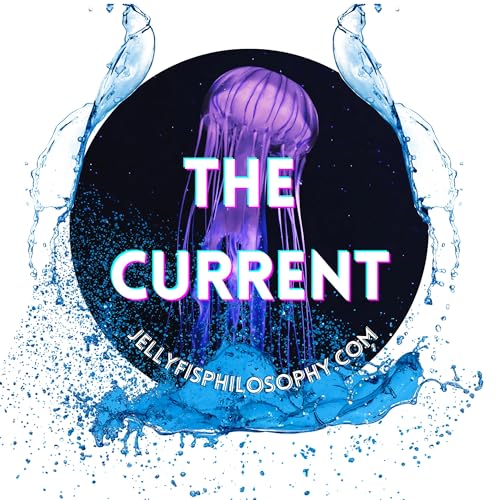
S01E04 - The Float: The Exhaustion of Verification
カートのアイテムが多すぎます
カートに追加できませんでした。
ウィッシュリストに追加できませんでした。
ほしい物リストの削除に失敗しました。
ポッドキャストのフォローに失敗しました
ポッドキャストのフォロー解除に失敗しました
-
ナレーター:
-
著者:
このコンテンツについて
Chapters:
0:00 Intro Hook
00:50 Part One: The Verification Spiral
06:05 Part Two: Why Verification has become Impossible
09:25 Part Three: The Emotional Toll
11:47 Part Four: Permission and Practice
15:24: Closing
17:47: Bonus Song: Drift With The Tide
The Setup:
Last week on The Current, we explored the epistemic crisis—why we can't agree on what's true anymore. We talked about the distinction between truth and trust, how algorithms create parallel realities, and why verification has become so difficult.
Today gets personal. We're talking about what it FEELS like when you try to verify information in 2025.
The Story:
I tell you about my three-hour verification spiral—trying to check one simple statistic and ending up with seventeen tabs, contradicting fact-checkers, paywalled research, and more confusion than when I started.
It's a story you'll recognize because you've lived some version of it.
What We Explore:
The Verification Spiral:
- Starting with a simple question
- The citation maze
- Contradicting fact-checkers
- The meta-problem of verifying your verification
- The emotional aftermath of failure
Why This Has Become Impossible:
- Volume: Too much to verify, information moves too fast
- Access: Paywalls, technical language, unavailable sources
- Expertise: Can't really assess sources outside your field
- Sophistication: Misinformation has gotten really good
- Multiplication: The more you look, the more complicated it gets
The Emotional Toll:
- The anxiety of uncertain ground
- The guilt of not doing enough
- The cynicism that comes from repeated failure
- The loneliness of uncertainty in a certain world
Permission Structures:
I offer five permissions that might feel radical:
- You don't have to verify everything - It's literally impossible, so stop feeling guilty
- "I don't know" is a complete sentence - You don't owe everyone your opinion
- Trusting imperfect sources is okay - Build trust consciously, not perfectly
- Changing your mind is strength - Update beliefs when new info emerges
- Mental health > maximum information - Sanity matters more than completeness
This Week's Practice:
The Verification Triage - Before trying to verify something, ask:
- Does this require action from me?
- Do I have the time and expertise to verify this properly?
- Will verifying this improve my life or decision-making?
This isn't intellectual laziness. It's strategic wisdom.
The Deeper Practice:Sitting with uncertainty. Practicing being okay with not knowing. Holding questions lightly instead of gripping them tightly.
Key Quotes:
"Three hours. No answer. Just exhaustion. And I felt like a failure."
"Having access to information and being able to verify information are two completely different things."
"'Do your own research' has become almost a joke—not because research is bad, but because genuinely rigorous research is impossible given time, access, and expertise constraints."
"Uncertainty, in our current information environment, is often the most truthful position available."
"You're not stupid. You're not slow. You're not failing. You're demonstrating more intellectual honesty than most people."
What's Next:
Wednesday: We explore one of the biggest reasons verification is so hard—algorithmic echo chambers and filter bubbles. How the algorithms create parallel realities and what you can actually do about it.
Episode Tags: verification exhaustion, information overload, fact-checking, epistemic crisis, digital wellness, mental health, uncertainty, intellectual humility


